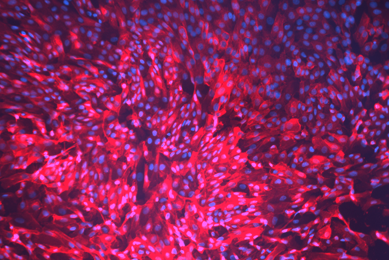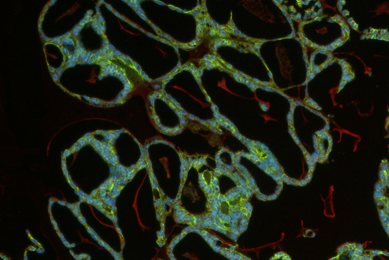Why it’s important
Preclinical drug screening can be hampered by several factors including limited donor material, lot to lot variability, and limited lifespan of in vitro models. While continuous cell lines can be relied upon to proliferate rapidly and provide large numbers of cells for screens, they lose many of their in vivo physiological properties. Therefore, the results of early screens need to be confirmed in models that more closely resemble mammalian physiology.
How we can help
To address these issues ATCC scientists have developed several models including immortalizing primary cells with human telomerase--cells that maintain the ability to be cultured to high passage without the loss of replicative senescence or important biological characteristics.
Register for three research-based webinars focusing on the testing and validation of our advanced models. In each webinar, scientists present relevant data on the products and research to date and answer your questions in the Q&A sessions that follow each presentation.
Join the webinar as ATCC scientists discuss the characteristics and utility of various respiratory, skin, and kidney models in toxicological assays. Learn how these modified primary cells can provide tissue-relevant results and reproducibility.
Learn about ATCC’s physiologically relevant transporter cell models using hTERT-immortalized primary renal proximal tubule epithelial cells (RPTEC) that stably overexpress the OAT1, OCT2, or OAT3 gene. Scientists will share the data indicating that these cell lines are provide tissue-relevant results, improved consistency over time, and predictability for clinical trials.
3-D Models for Absorption and Cosmetic Toxicity Studies: Primary and Immortalized Epidermal Cells Webinar, March 2
Sign up for this webinar to learn how ATCC’s hTERT-immortalized cells can be used to study the complex process of skin pigmentation, high throughput screening, environmental/cosmetic toxicology, and basic research into cell metabolism.
Did you know?
ATCC has over 50 hTERT-immortalized cells and reagents in our collection for your toxicity screening or drug development.
Toxicologist
Brian Shapiro, PhD
Marketing Segment Manager, Oncology, ATCC
Brian A Shapiro, PhD, works to communicate the scientific breakthroughs of ATCC’s product development laboratories to the biomedical research community. Brian is the Executive Producer of ATCC's Podcast, Behind the Biology. Previously, he worked at Virginia Commonwealth University, where he investigated the role of pre-mRNA splicing in the multi-drug resistance of lung cancer. Dr. Shapiro attended the Medical College of Georgia, where his research focused on adrenal physiology as well as diseases of the epidermis.
Explore our toxicology products

Toxicology
ATCC provides the tools you need to explore lung, skin, cardiovascular, gastro-enteric, liver, kidney, and neural toxicity. Our cells, media, and reagents help in toxicology research to identify responses to environmental toxins or to screen pharmaceutical compounds.
More
Toxicology and Safety Testing
Streamline your research with advanced cell models that support every stage of your toxicological screening.
MoreToxicological Screening
Patient outcomes depend on accurate diagnostic assays. Discover why advanced biological models are essential for the development and validation of diagnostic tools.
More